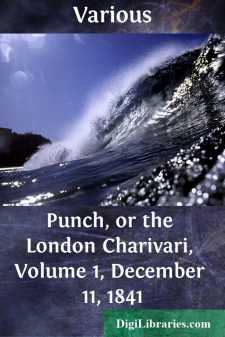Categories
- Antiques & Collectibles 13
- Architecture 36
- Art 48
- Bibles 22
- Biography & Autobiography 813
- Body, Mind & Spirit 142
- Business & Economics 28
- Children's Books 17
- Children's Fiction 14
- Computers 4
- Cooking 94
- Crafts & Hobbies 4
- Drama 346
- Education 46
- Family & Relationships 57
- Fiction 11829
- Games 19
- Gardening 17
- Health & Fitness 34
- History 1377
- House & Home 1
- Humor 147
- Juvenile Fiction 1873
- Juvenile Nonfiction 202
- Language Arts & Disciplines 88
- Law 16
- Literary Collections 686
- Literary Criticism 179
- Mathematics 13
- Medical 41
- Music 40
- Nature 179
- Non-Classifiable 1768
- Performing Arts 7
- Periodicals 1453
- Philosophy 64
- Photography 2
- Poetry 896
- Political Science 203
- Psychology 42
- Reference 154
- Religion 513
- Science 126
- Self-Help 84
- Social Science 81
- Sports & Recreation 34
- Study Aids 3
- Technology & Engineering 59
- Transportation 23
- Travel 463
- True Crime 29
Our website is made possible by displaying online advertisements to our visitors.
Please consider supporting us by disabling your ad blocker.
Punch, or the London Charivari, Volume 1, December 11, 1841
by: Various
Categories:
Description:
Excerpt
THE PHYSIOLOGY OF THE LONDON MEDICAL STUDENT.
11.—HOW MR. MUFF CONCLUDES HIS EVENING.
Essential as sulphuric acid is to the ignition of the platinum in an hydropneumatic lamp; so is half-and-half to the proper illumination of a Medical Student’s faculties. The Royal College of Surgeons may thunder and the lecturers may threaten, but all to no effect; for, like the slippers in the Eastern story, however often the pots may be ordered away from the dissecting-room, somehow or other they always find their way back again with unflinching pertinacity. All the world inclined towards beer knows that the current price of a pot of half-and-half is fivepence, and by this standard the Medical Student fixes his expenses. He says he has given three pots for a pair of Berlin gloves, and speaks of a half-crown as a six-pot piece.
Mr. Muff takes the goodly measure in his hand, and decapitating its “spuma” with his pipe, from which he flings it into Mr. Simpson’s face, indulges in a prolonged drain, and commences his narrative—most probably in the following manner:—
“You know we should all have got on very well if Rapp hadn’t been such a fool as to pull away the lanthorns from the place where they are putting down the wood pavement in the Strand, and swear he was a watchman. I thought the crusher saw us, and so I got ready for a bolt, when Manhug said the blocks had no right to obstruct the footpath; and, shoving down a whole wall of them into the street, voted for stopping to play at duck with them. Whilst he was trying how many he could pitch across the Strand against the shutters opposite, down came the pewlice and off we cut.”
“I had a tight squeak for it,” interrupts Mr. Rapp; “but I beat them at last, in the dark of the Durham-street arch. That’s a dodge worth being up to when you get into a row near the Adelphi. Fire away, Muff—where did you go?”
“Right up a court to Maiden-lane, in the hope of bolting into the Cider-cellars. But they were all shut up, and the fire out in the kitchen, so I ran on through a lot of alleys and back-slums, until I got somewhere in St. Giles’s, and here I took a cab.”
“Why, you hadn’t got an atom of tin when you left us,” says Mr. Manhug.
“Devil a bit did that signify. You know I only took the cab—I’d nothing at all to do with the driver; he was all right in the gin-shop near the stand, I suppose. I got on the box, and drove about for my own diversion—I don’t exactly know where; but I couldn’t leave the cab, as there was always a crusher in the way when I stopped. At last I found myself at the large gate of New Square, Lincoln’s Inn, so I knocked until the porter opened it, and drove in as straight as I could. When I got to the corner of the square, by No. 7, I pulled up, and, tumbling off my perch, walked quietly along to the Portugal-street wicket. Here the other porter let me out, and I found myself in Lincoln’s Inn Fields.”
“And what became of the cab?” asks Mr. Jones.
“How should I know!—it was no affair of mine....












